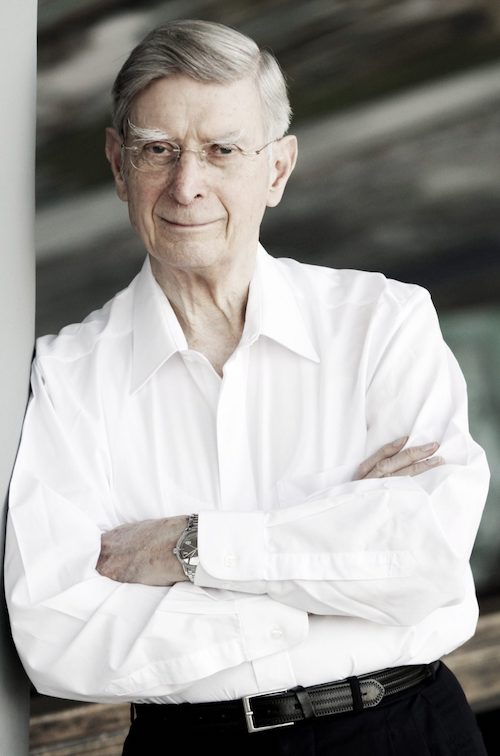Blomstedt, 95, brings seasoned freshness to familiar Berlioz

Age and experience can produce a unique view of historical time, making events deep in the past a vivid part of the immediate present.
A case in point was manifest Thursday night as conductor Herbert Blomstedt, in his 95th year and nearing seven decades on the podium, brought an important part of his own past to lead the New York Philharmonic at David Geffen Hall. If Blomstedt’s past—along with one of the great works of the symphonic repertoire—didn’t quite translate to today, the full evening was still a real pleasure with some brilliant thinking and playing.
Blomstedt brought two pieces to the New York Philharmonic, Berlioz’s Symphonie fantastique and, in the first half, Poesis by Swedish composer Ingvar Lidholm. Blomstedt and Lidholm were professional peers first, and later friends; a relationship that went back to 1964, when Blomstedt led the premiere of Poesis. He has been bringing this work to audiences ever since.
The conductor took the time to introduce Poesis to the audience, with a lot of enthusiasm and a little comedy—it opens with a percussionist rubbing sandpaper together and Blomstedt recommended “No. 4, for you amateur carpenters.” And indeed, that is how it began, with a rhythm that becomes one of the fundamental structural elements in the music. Most of the rest is texture, timbre, atmosphere, with delicate, wispy string harmonics flowing into quiet, invigorating dissonances, made keener by the Philharmonic’s refined playing. There is a manic, swirling bass solo, and a full-on concertante piano part, played by Eric Huebner, that makes heavy use of the instrument’s interior.
The audience got a big kick out of Huebner blowing a whistle. Their response to the whole work—which ties together basic rhythms and shapes without much using phrases or harmonies, and ends with a punchy orchestral crescendo on B-flat—was enthusiastic.
The 21st century experience of hearing a piece of mid-20th century avant-gardism is that Poesis is a skillful construction of abstraction. Yet it is ultimately dated with an expressionist drama that belongs to pre-WWII European tradition and orchestration and form that very much part of an era seeking out of serialism while awkwardly acknowledging and avoiding the experimentalism of John Cage. This is a period sound that since 1964 has been folded into standard compositional practice. Under Blomstedt, the music seemed to be fully alive and of the moment, and he did press that vigor through the orchestra.
Symphonie fantastique exceeded that energy, it was tremendously vital, and also wise. This was a masterful performance, not shining any unusual light on the symphony, but presenting all its own light and color in the clearest, most illuminating, and sympathetic way.
The performance had the mark of the conductor’s experience. The playing had an energy and focus that flowed, powerful but effortless. One appreciated the artistry of how the conductor shaped each phrase, the subtle pushing and pulling, and as these accumulated one felt their effect unfold as the shape of each movement came into view and finished with great satisfaction.
The orchestral playing was fabulous—the details of Berlioz’s revolutionary orchestration are often lost with modern instrumentats, but this performance was full of the type of subtleties that make the music always fresh and exciting. The mix of strings and brass in the “Marche au supplice”was superb, with a truly eerie quality, and the playing from the brass section in that and the final movement was simply awesome.
Symphonie fantastique is so familiar to both musicians and audiences that it is easy for it to be routine for all—a real problem in the standard repertoire—but this performance was anything but routine, and there was a real sense of thrills that came through the musicians and reached the audience. Wisdom and experience brought the past to life.
This program will be repeated 2 p.m. Friday and 8 p.m. Saturday. nyphil.org








Posted Feb 07, 2023 at 9:41 am by PLK
I thoroughly agree with this fine review. I think the new hall is a really good one and the orchestra, as it gets more and more used to it, is sounding better than ever–even the brass